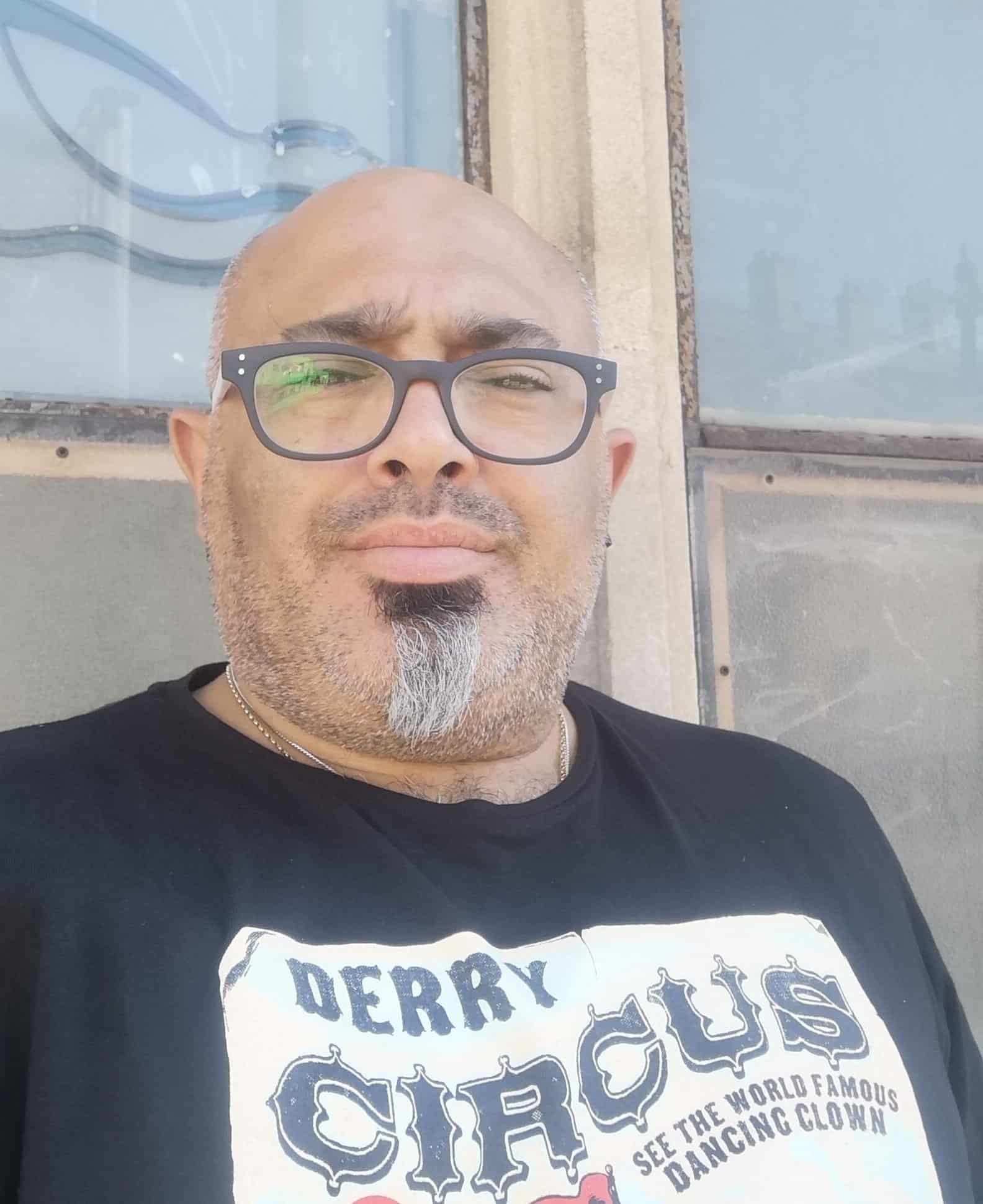Beta thalassaemia major is a serious, lifelong genetic blood disorder. People with thalassaemia cannot make enough haemoglobin in their red blood cells. Consequently, they need frequent and regular blood transfusions throughout their lives.
If left untreated, a child born with thalassaemia would die before the age of eight years. At least 75,000 children are born  with thalassaemia worldwide every year, of which 10,000 have the debilitating form of beta thalassaemia major. Dimitri Azzopardi (pictured right) explains what it is like to live with the condition.
with thalassaemia worldwide every year, of which 10,000 have the debilitating form of beta thalassaemia major. Dimitri Azzopardi (pictured right) explains what it is like to live with the condition.
“My family is from Greece originally but I was born and grew up in Wales, a country which even today has very few thalassaemia patients. When I was born 38 years ago, nobody – including my family – had any idea what was in store. I was eventually diagnosed with beta thalassaemia major at the age of two, after a lot of ‘trial and error’ trips to the doctor. It was quite a shock for my parents; treatment was nothing like as advanced as it is today, people were still dying very young and to get a diagnosis of thalassaemia was devastating.
“Luckily for me, my family lived close to Cardiff which has a large, modern hospital. Today, Cardiff is still the only hospital in Wales that treats thalassaemia patients – there aren’t many of us ‘thalleys’ in the valleys! When I was younger, I used to stay overnight in hospital to have my transfusions and my mum always used to stay with me.
“One vivid memory from when I was a child is when I was about eight years old, a nurse was attempting to put up a unit of blood for me when she accidentally pierced through the actual plastic of the bag and blood started running everywhere! Looking back, I suppose she was worried about getting into trouble for wasting the blood because she actually got out a sticking plaster and tried to patch it up.
“My mum, however, was having none of it and she wouldn’t let her bring the compromised blood anywhere near me. I still think about it and I am glad my mum stuck to her guns, but it just shows you what could have happened if she hadn’t been with me. I get on very well with the doctors and nurses in Cardiff, they are a great team and very dedicated. I appreciate everything they do to keep me as fit as I can be.
“Of course, it helps that thalassaemia treatment has improved greatly over the years; oral chelating medicines have made life so much easier and transfusions are quicker and easier than they used to be. In fact, I have a great deal more than that for which to thank my mum. She was always very encouraging when I was young.
“Like a lot of young boys I was very keen on sports and mum never tried to put me off – her attitude was always ‘try it and see how you get on’. I played most sports as a youngster and to this day my favourite hobby is playing roller hockey; I play for my team which is the Cardiff Bay Crossbones.As anyone who has seen any kind of hockey on TV will know, it is a very physical game and not for the faint-hearted. Thalassaemia is left behind in the dressing room and, believe me, I give as good as I get!
“When I’m not playing roller hockey, planning or having tattoos, I love watching films and spending time with my family – especially if it involves enjoying my mum’s Greek cooking. Family is the most important thing in the world to me and the other person who has been a major influence in my life and has given me tremendous support over the years is my sister Sofia.
“As for my career, I do cost administration for a civil engineering company. The job suits me very well and I really appreciate my employers’ understanding in allowing me to take the day off when I need a transfusion. My team mates, friends and colleagues know I have thalassaemia, but I don’t see it as the most important thing about me or make an issue of it and nor does anyone else.
“All in all, I have a good life, and I am going to keep on being myself and enjoying life for many years to come!”
You can find information about Rare Disease Day here and here, or via the Twitter activity.




